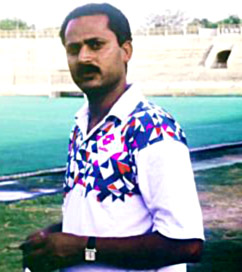
Maulana Habib-ur-Rehman Ludhianvi was one of the few influential Muslims who not only opposed the two-nation theory but also fought against it. In fact, he was so upset and dejected over Partition that he could not resist shouting at Jawaharlal Nehru, with whom he enjoyed cordial relationship.
The Maulana, born in Ludhiana on July 3, 1892, belonged to a religious and nationalist family. His great grandfather, Shah Abdul Qadir Ludhianvi, was the first person to issue a “fatwa” against the British in 1857, for which he had to pay dearly. And the Maulana lived by the nationalist beliefs and stayed back in Ludhiana, despite so much communal frenzy and manslaughter.
Much against the common belief that the demand for Pakistan had a strong backing of the religious leadership of the country, the Maulana always stood sincerely with the Congress. He happened to be one of the important symbols of secularism in the Congress along with Maulana Azad and Rafi Ahmed Kidwai.
The Maulana literally lived by his nationalist ideals. When Pandit Nehru unfurled the tricolour on the banks of the Ravi, the Maulana unfurled it in Ludhiana. He also vehemently opposed the “Hindu pani, Muslim pani” move of the British to put separate pitchers for Hindus and Muslims at railway stations. After his strong resistance, the move was withdrawn.


For his strong nationalistic beliefs, the Maulana had to spend 14 years in prison at various places like Shimla, Mianwali, Multan, Ludhiana and Dharamsala. He was kept in cold places during winters and hot places during summers. He developed serious infection in the jail that cut short his life and he died in 1956.
After Independence, he set up the “Phir Basau Committee” to arrange the return of Hindu and Sikh girls who had been forcibly detained in Pakistan and the Muslim girls who had been detained in India to Pakistan. Thousands of girls returned to their parents under this exchange programme. It was he who suggested running of the Samjauta Express train between India and Pakistan to restore the link between the divided families.
In 1952, he was appointed the leader of a delegation to visit Saudi Arabia by Pandit Nehru. He was one of the important ambassadors of Nehru to lobby for India in the Muslim world and it helped a great deal in establishing India’s credibility among the Islamic countries despite the presence of Pakistan. His influence was acknowledged by the then Saudi ruler Shah Saud Awal, with whom the Maulana had personal relationship.
Unfortunately, despite his immense contribution towards the freedom and the unity of the country, the Maulana remains a forgotten hero. Except for his descendants, not many people know about his secular ideals he cherished all through his life.
Given his influence over the Muslims across the region, he would have been always been welcome in the Muslim League, but he never looked towards it. In fact, he always got feelers from the league with “fabulous” offers. But he always remained true to secular spirit of Indian nationalistic movement.
Source : ludhianadistrict.com
























